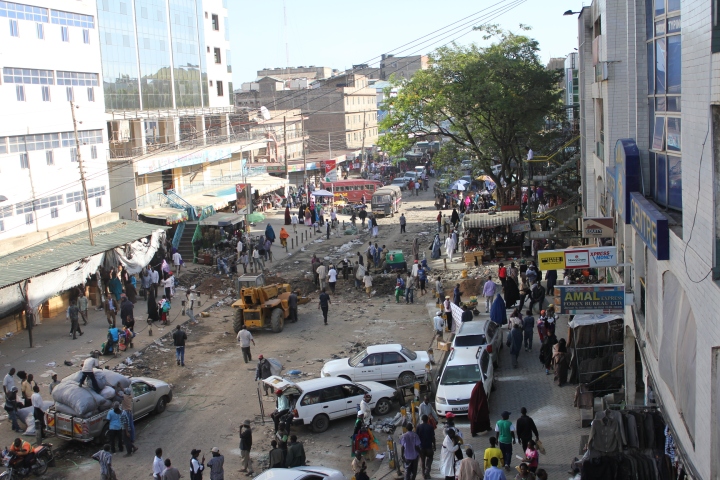Refugees living in the urban centers of Nairobi have faced harsh mistreatment since December 2012, when the Kenyan government passed an order to force refugees into the camps.
In late 2011, the Kenya Defence Forces moved into Somalia to cut down the series of attacks and kidnappings in the country by the terrorist group Al-Shabaab. Additionally, ethnic Somalis including the refugees in the suburbs of Eastleigh were suspected of belonging to Al-Shabaab or its sympathizers by the Kenyan security department, which claimed they were a security threat within the country’s borders. The government decided the Somali refugees should be forced to leave urban areas or to return to Mogadishu.
On Tuesday, 18th December, 2012, the Kenya Ministry of Immigration and registration of persons ordered all urban refugees to return to designated camps by stopping registration and other service deliveries. The Ministry set January 21st as the deadline for voluntary relocation after which refugees have to be forcefully moved. The negative decision was made through the Department of Refugee Affairs – DRA, a body that should advocate and protect refugee rights in Kenya.
Since the government decision was made, there has been a dramatic increase in attacks on refugees and Kenyan security officers have been widely accused of torture, rape, and extorting large sums of money from ethnic Somali refugees in the suburbs of Eastleigh, Nairobi.

Refugees in the cities have been trading with the citizens which has contributed to the economy of the country through taxes. But since the change in policy, the residents of Eastleigh, who are mainly businessmen and women, have complained of irregular patrols and bribes on daily basis by the Kenyan armed security officials who threaten to move them out. “The security officers visit my store and demand bribes on daily basis,” Abdulrizack Mohamed told Kanere at 6th Street.
Following the attacks and imprisonment of thousands of Somali refugees in the capital, many of the Eastleigh residents have been forced to return to the congested, unsecured camps. While the top security officials have continued to seek cash ransoms from refugees to re-assure their safety or stay, the Somali refugees have referred themselves as “Human ATM machines for Kenya police,” branded due to ongoing higher bribes and extortion which Eastleigh residents have raised the alarm about.
However, is it clear if this was an appropriate response to security concerns in the country?
The relocation plan was discriminatory – because refugees are denied the right to freedom of movement and the right to stay where they wish, despite the Kenyan government having issued Refugee Identity Cards as a proof of refugee recognition under its Refugee Act of 2006.
In January, the Kenyan High Court ordered the authorities to suspend the refugee relocation plans whereby more than 50,000 refugees and asylum seekers are supposed to leave urban areas of Kenya for overcrowded refugee camps located in remote areas of Kenya. By the middle of May the court had not yet made a ruling on the negative decision.
Some NGOs and human rights organizations have opposed the move terming it a violation of the Kenyan constitution and international laws which the Kenyan government has ratified, yet the government has not confirmed if refugees will remain accommodated in the urban centers in Kenya.
According to a Human Rights Watch report seen by Kanere, the UN Refugee Agency UNHCR has failed to adequately document and speak about the police abuse and should improve its monitoring of abuses of refugees and record and publicly condemn any further unlawful abuses.
According to an official report published by the UN Office for the Co-ordination of Humanitarian Affairs, more than 12,000 people have returned to Somalia due to the decree to relocate urban refugees to camps and fear of attacks, looting, rape and discriminatory government decisions. However, the Mogadishu-based Heritage Institute of Policy Studies (HIPS) states that more than 30,000 Somali refugees have voluntarily left Kenya since the repatriation call was made by government.
In Kakuma refugee camp, only a few Somali refugees have started registering for voluntary repatriation after an official notice dated 4th June by the Department of Refugee Affairs through the office of Camp Manager.
